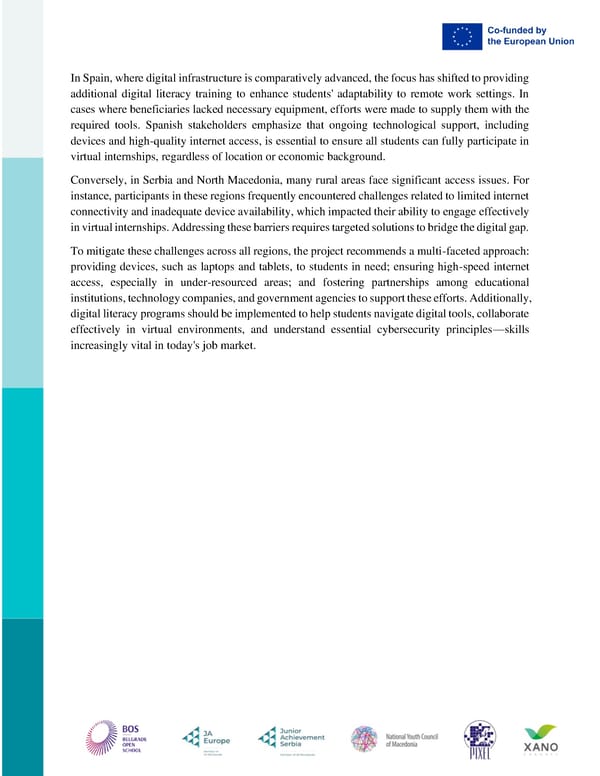In Spain, where digital infrastructure is comparatively advanced, the focus has shifted to providing additional digital literacy training to enhance students' adaptability to remote work settings. In cases where beneficiaries lacked necessary equipment, efforts were made to supply them with the required tools. Spanish stakeholders emphasize that ongoing technological support, including devices and high-quality internet access, is essential to ensure all students can fully participate in virtual internships, regardless of location or economic background. Conversely, in Serbia and North Macedonia, many rural areas face significant access issues. For instance, participants in these regions frequently encountered challenges related to limited internet connectivity and inadequate device availability, which impacted their ability to engage effectively in virtual internships. Addressing these barriers requires targeted solutions to bridge the digital gap. To mitigate these challenges across all regions, the project recommends a multi-faceted approach: providing devices, such as laptops and tablets, to students in need; ensuring high-speed internet access, especially in under-resourced areas; and fostering partnerships among educational institutions, technology companies, and government agencies to support these efforts. Additionally, digital literacy programs should be implemented to help students navigate digital tools, collaborate effectively in virtual environments, and understand essential cybersecurity principles—skills increasingly vital in today's job market.
 Policy Recommendations Page 5 Page 7
Policy Recommendations Page 5 Page 7